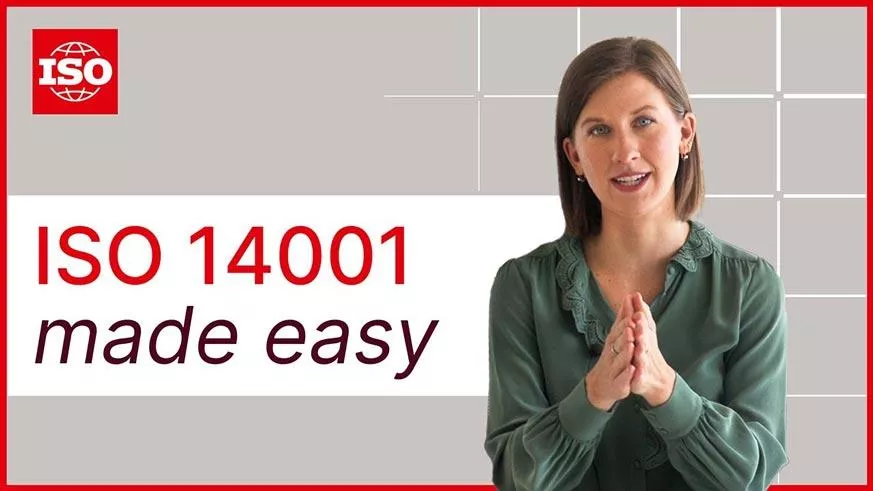What is the ISO 14001 standard?
The ISO 14001 standard sets the international best practice for environmental performance management. It helps organisations create a standardised approach to managing their environmental and sustainability objectives.
ISO 14001 is a generic management system standard that can be applied to any business regardless of size, activity, or sector. There are over 300,000 businesses in 171 countries with ISO 14001 certification and growing. Whether you are a small, single-site operator or a multi-national organisation, an ISO 14001 certification can offer you a competitive advantage.
Benefits of ISO 14001 Certification
A certified Environmental Management System demonstrates your commitment to the environment across all levels of your organisation.
As the focus on environmental sustainability increases, many businesses are looking for ways to reduce their environmental impact, including choosing supply partners that share their values. An Environmental Management System helps you to systematically manage your environmental responsibilities and remain accountable.
The benefits of an ISO 14001 certified Environmental Management Systems often include:
Why certify with TQCSI?
TQCSI has provided ISO 14001 certification for all kinds of businesses around the world. Each of our offices is staffed with a team of local experts to make your certification process simple.
We’re not just for big business. Our proven certification systems and global network make it simple and affordable for organisations of all sizes to achieve ISO 14001 certification for their environmental management system.


Start your ISO 14001:2015 Certification now
To start your certification journey, contact your local TQCSI office or complete our online form. You don’t need to wait until your Environmental Management System is implemented; for speedy certification, contact us today.
Start Certification ProcessHow to prepare for ISO 14001 Environmental Management Systems certification
At TQCSI, we aim to make your ISO 14001 certification approach fast, hassle-free and straightforward. We start by assessing your systems, processes and supporting documentation and performing a gap analysis to identify areas that need to be addressed. You can put your best foot forward by using the guidelines below to prepare for a stress-free certification process.
Environmental Management System Requirements
Based on the same higher-Level structure that all ISO management system standards follow, ISO 14001 is not a prescriptive document, rather it specifies requirements to allow organisations to achieve intended outcomes they set for their environmental management system.
An Environmental Management System requires organisations to:
- Conduct an Initial Environmental Review (or equivalent) to identify the potential environmental aspects and impacts for the organisation’s premises, processes and products
- Develop and monitor environmental objectives and targets
- Understand external and internal issues, and interested parties, relevant to the environment
- Develop an Environmental Policy declaring commitment to environmental sustainability
- Develop an Environmental Aspects and Impacts Register
- Develop an Environmental or Management Manual addressing the clauses of ISO 14001
- Develop procedures to address environmental monitoring, where required
- Embrace environmental risks and opportunities throughout the business
- Ensure compliance with regulatory and customer requirements
- Ensure staff are competent and understand the environmental management system
- Monitor environmental performance
- Plan responses to emergencies and mitigate environmental damage
- Control environmental nonconformances and take corrective action for significant or repetitive nonconformances
- Conduct internal audits of the environmental management system
- Ensure senior management strategically review the environmental management system.
Documentation Requirements for ISO 14001 Certification
To become certified to the ISO 14001:2015 standard, businesses must have the following documentation:
- Initial Environmental Review (or equivalent audit)
- Environmental Policy
- Environmental Aspects & Impacts Register
- Environmental or Management Manual
- Procedures
- Environmental Management or Improvement Plan (monitoring environmental objectives and targets)
- Registers – for nonconformances and corrective action, and compliance
- Emergency Response Plan
Implementing an Environmental Management System
To achieve your ISO 14001 certification, your EMS should demonstrate a risk-based approach to managing, reporting and documenting the environmental impacts of your business operations.
ISO 14001:2015 Certification Mark for Environmental Management System
Once your EMS has been certified, you can proudly display the TQCSI certified tick to promote your ISO 14001 certification.
Want to know more about ISO 14001 Certification?
ISO 14001 Certification of Environmental Management Systems helps organisations enhance their environmental performance and improve their reputation, ensuring compliance with environmental regulations and attracting environmentally conscious customers and partners.
Contact your local TQCSI office today to learn how ISO 14001 certification can help your business, or email us at info@tqcsi.com





